#senior caregivers North Carolina
Explore tagged Tumblr posts
Text
Ensuring that seniors receive adequate support for mobility is crucial in providing comprehensive senior care in North Carolina. Limited mobility can significantly impact the quality of life, making it essential for caregivers and families to find effective walking assistance solutions.
0 notes
Text
Your Trusted Choice for Senior Living in North Carolina – Carolina Inn
Finding the right senior living in North Carolina is a critical decision for both seniors and their families. At Carolina Inn, we are committed to offering top-quality care and a nurturing environment for our residents, making us a premier choice for senior living in North Carolina.

Located in a picturesque setting, our community provides a range of personalized services, including assisted living and specialized memory care, ensuring each resident receives the support they need while maintaining their independence. With a compassionate team of caregivers, Carolina Inn is designed to enhance the daily lives of seniors by offering tailored care plans, 24/7 health monitoring, and engaging social and recreational activities.
As a leading provider of senior living in North Carolina, Carolina Inn boasts state-of-the-art amenities, beautifully maintained grounds, and a vibrant community atmosphere. Our residents enjoy gourmet dining, wellness programs, and a variety of enriching activities that foster connections and promote a fulfilling lifestyle.
Choosing senior living in North Carolina means finding a community that prioritizes comfort, safety, and well-being. Carolina Inn is proud to provide all of this and more, offering peace of mind for families and a welcoming, home-like environment for residents.
0 notes
Text
Benefits of In-Home Care Services Charlotte for Seniors

As our loved ones age, ensuring they receive the care and attention they need becomes a top priority. For many seniors, the desire to remain in the comfort of their own homes is strong. In Charlotte, North Carolina, this is made possible through home care services. Here, we will explore the benefits of home care Charlotte, the importance of Charlotte caregiver, and the services provided by home care agencies. Let's dig into how home care can enhance the quality of life for seniors.
The Essence of Home Care
Home care is a specialized form of caregiving that allows seniors to receive personalized assistance and support in the comfort of their own homes. It encompasses a wide range of services that cater to the individual needs and preferences of each senior, promoting independence and preserving their sense of dignity.

Understanding the Role of a Caregiver
At the heart of home care lies the caregiver. These dedicated individuals play a crucial role in the lives of seniors, providing not only physical assistance but also emotional support. Caregivers become trusted companions, easing feelings of loneliness and enhancing overall well-being.
The In-Home Care Services Provided by Hallmark Homecare
Hallmark Homecare offers a wide range of in-home care services that cater to the unique needs and preferences of their clients. These services are designed to enhance the quality of life for individuals requiring assistance with daily activities, seniors, and those with special needs. Some of the key in-home care services provided by Hallmark Homecare include:
1. Personal Care Assistance
Hallmark Homecare's trained caregivers offer compassionate and professional personal care assistance. This includes help with bathing, grooming, dressing, and maintaining personal hygiene.
2. Medication Management
Caregivers at Hallmark Homecare assist clients with medication reminders, ensuring they take their prescribed medications accurately and on time.
3. Companionship and Emotional Support
Beyond providing physical care, Hallmark Homecare caregivers offer companionship and emotional support to clients, helping to alleviate feelings of loneliness and isolation.
4. Mobility Assistance
For clients with mobility challenges, caregivers are trained to provide safe and supportive assistance to help them move around their homes.
5. Meal Preparation
Hallmark Homecare caregivers can prepare nutritious and delicious meals tailored to meet the dietary needs and preferences of their clients.
6. Specialized Care Programs
Hallmark Homecare offers specialized care programs for individuals with specific health conditions such as dementia, Alzheimer's, Parkinson's, and others. These programs are designed to address the unique challenges faced by clients with such conditions.
In-Home Care Services: Tailored to Individual Needs
Home care services are highly adaptable and tailored to meet the unique requirements of each senior. From assistance with daily activities like bathing, dressing, and meal preparation, to medication reminders and transportation, caregivers ensure that seniors can continue to live comfortably at home.
Home Care Agencies in Charlotte: Choosing the Right Support
Choosing a reliable in-home care service like Hallmark Homecare is vital in ensuring the best care for your loved one. Reputable agencies in Charlotte conduct thorough background checks and provide proper training for their Charlotte caregiver, ensuring your senior receives top-notch care from qualified professionals.
The Devoted Home Caregivers: Compassionate Companionship
Beyond the practical support they offer, caregivers develop deep connections with seniors. Through companionship, they uplift spirits and engage seniors in meaningful conversations and activities, promoting mental and emotional well-being.
Why Choose Hallmark Homecare Services?
There are several compelling reasons to choose Hallmark Homecare for your in-home care needs:
1. Experience and Expertise
Hallmark Homecare has a wealth of experience in providing top-notch in-home care services. Their caregivers are highly trained and possess the expertise to handle various client needs with professionalism and compassion.
2. Personalized Care Plans
At Hallmark Homecare, each client receives a customized care plan tailored to their specific requirements. This personalized approach ensures that clients receive the exact care and support they need.
3. Compassionate Caregivers
The caregivers at Hallmark Homecare are known for their compassionate nature and genuine dedication to the well-being of their clients. They prioritize the emotional and physical comfort of their clients, fostering a warm and caring environment.
4. Flexibility and Adaptability
Hallmark Homecare understands that individual needs can change over time. Therefore, they offer flexible care options that can be adjusted to accommodate any changes in their clients' requirements.
5. Transparent Communication
The team at Hallmark Homecare believes in open and transparent communication. They regularly update the families of their clients on their loved ones' progress, ensuring everyone is well-informed and involved in the care process.
#home care charlotte#charlotte caregiver#home elderly care#senior home care charlotte#in home care services#home care agencies in charlotte
0 notes
Text
Aging is a natural part of life, but that doesn’t mean you must compromise your health and well-being as you age. At our agency with home care services in Gastonia, North Carolina, we are committed to helping seniors age gracefully and maintain their independence. By understanding the science of healthy aging, we can provide the best possible care for our clients today.
0 notes
Text
Caring for a senior loved one can be both rewarding and challenging, but it’s essential for caregivers to take breaks to recharge and avoid burnout. That’s where respite care comes in, offering temporary relief for family caregivers while ensuring seniors receive the support and care they need.
0 notes
Text
As adults enter their senior years they begin to experience memory loss, which may interfere with their performing key tasks like managing their own medications. This, coupled with the increasing complexity of their medication regimen means they can benefit from companion care.
0 notes
Text
Respite Care
SFHC provide non-medical, in home health care to seniors and those in need who wish to remain independent in their own homes for as long as possible. Their caregivers provide assistance with errands, incidental transportation to doctors and other service providers, medication monitoring, light housekeeping and laundry. We can also provide assistance with personal hygiene such as grooming, dressing and monitoring for bath safety.
Our caregivers are employees of Stress Free Home Care. They are thoroughly screened, bonded and insured, and we perform extensive reference, criminal, and DMV checks. Since we pay workman’s compensation on our employees, any potential problems a client may face when hiring an independent contractor are eliminated. Stress Free Home Care, is licensed by the State of North Carolina, United States for in-home aide services. Their services are designed according to the requirement of distinct clients. Caregivers are always available 24 hours a day, 7 days a week. One of the many concerns for seniors and their families is their dietary habits. We work with a dietary consultant to help address this concern and bring this expertise to families and their loved ones at their request.
Their Services are not limited to just Home Health Care. In addition, they also provide the following services: Respite Care, Dementia Care, Senior home care etc. Stress Free Home Care serve the following locations and the surrounding Areas: Gastonia, Charlotte, Denver, Lincolnton, Mt. Holly, Stanley, Catawba, Huntersville, Dallas, Belmont and Lowell.
0 notes
Text
What To Look For While Hiring Senior Caregivers In North Carolina?
We all understand the aging process and what types of effects it can have on health. Therefore, if you have seniors in your home who face challenges in completing their everyday work, it is crucial for you to provide them with senior caregivers in North Carolina. Caregivers are specially trained to help seniors with day-to-day work and help them to carry out various tasks easily. Continue reading about the qualities to look for while hiring a caregiver for seniors. Read More: https://www.biztobiz.org/articles/what-are-perks-of-availing-private-care-for-elderly-at-home
0 notes
Link
Get the best Senior Personal Care Services at Turning Point Services.Our professionally trained staff are CPR and First Aid certified and carefully selected through an extensive hiring process and background check. To know more about health and training services feel free to visit our website.
#Caregivers Home Health Jobs#Senior Personal Care Services#North Carolina Life Insurance#Elder Care Training#Home Care USA
4 notes
·
View notes
Link
Senior citizens need a companion who can assist them in activities of daily living. AH Home Health Care has the best solution for your loved ones. Companion caregivers at AH Home Health Care are responsible, reliable, experienced, and trustworthy.
#companion#caregiver for seniors#seniors#Healthcare#caregiver#Urgent Care#health#healthforall#healthy living#healthylifestyle#HEALTHYLIFE#personal care#inhome#home care#in-home aide services#senior care#charlotte#north carolina#USA#wellness#fitness#health is wealth#health information#health is important#adult care#kids care#family#parent#old houses#old age
0 notes
Text

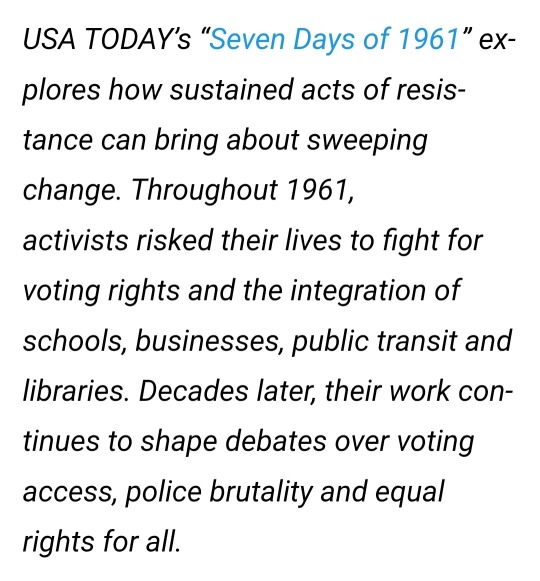
How lawmakers block progress and maintain oppressive policies
Many lawmakers, especially in the South, fought to maintain the nation’s founding principles of white supremacy.
In Alabama’s Dallas County, more than half the population was Black in 1961 but fewer than one in 100 Black citizens were registered to vote due to daunting poll taxes and other measures meant to disenfranchise Black voters.
Across the South, registrars could selectively ask Black voters to read part of the Constitution, then decide whether the text had been read to their liking, said Carol Anderson, an African American studies professor at Emory University in Atlanta.
As such, they had enormous power to block people from voting, Anderson said.
A modest civil rights act passed in 1957 had enabled the Justice Department to sue states for voting rights violations but put the onus on people whose rights had been violated, requiring them to challenge systems designed to keep them down, Anderson said. By 1963, a federal report examining 100 counties in eight Southern states found that Blacks remained substantially underrepresented at the polls.
Selma, the seat of Dallas County, became an important battleground as tensions escalated. A local judge stifled demonstrations by declaring public gatherings of more than two people illegal, drawing a visit from Martin Luther King Jr. and thrusting Selma into the national spotlight.
Throughout the 1950s and 1960s, Southern legislators repeatedly derailed civil rights-related proposals while chairing key committees, said David Bateman, an associate professor of government at Cornell University in Ithaca, New York.
“Their control over these committees allowed them to gate-keep the agenda,” Bateman said.
Images of officers attacking voting rights activists – including then 25-year-old activist John Lewis – on a Selma bridge with clubs and tear gas in March 1965 helped sway public support. Days after the so-called “Bloody Sunday” incident, President Lyndon Johnson pressed lawmakers to pass broad voting rights legislation. The Voting Rights Act of 1965 banned literacy tests and other discriminatory practices while requiring federal approval of proposed voting-eligibility standards before states could implement them.
Today, Bateman said, as increasing voting restrictions continue to disproportionately affect people of color, “there’s every reason to believe voter disenfranchisement campaigns will persist.”
The U.S. Supreme Court in 2013 reversed a key part of the landmark Voting Rights Act, allowing states to alter voting rules before obtaining federal consent. This summer, the court issued a ruling that disqualifies votes cast in the wrong precinct and only allows family members or caregivers to turn in another person’s ballot.
At least 18 states have enacted laws making voting harder this year, according to the Brennan Center for Justice at New York University. In Montana, legislators abolished Election Day registration. Florida curtailed after-hours drop boxes.
Georgia shortened absentee ballot request periods, criminalized providing food and water to queued-up voters and made opening polls optional on Sundays, traditionally a day when the Black vote spikes as congregants vote after church.
“We still have not dealt with anti-Blackness in this society,” said Anderson, of Emory University. “We’re really looking at the same pattern, the same rhymes.”
In September, Democrats introduced an elections and voting rights bill that would expand early voting options, identification requirements and access to mail-in ballots while allowing Election Day registration.
Police have long upheld racist laws, often with violence
As Blacks demanded equality during the civil rights movement, they faced hostility not just from fellow civilians but from those entrusted to protect and to serve.
In 1961, Freedom Rides occurred throughout the South as activists challenged Southern non-compliance with a Supreme Court decision ruling that declared segregated bus travel unconstitutional. The campaign met with often ugly resistance: In Birmingham, riders were attacked by a Ku Klux Klan mob, reportedly with baseball bats, iron pipes and bicycle chains.
Within the mob was an FBI informant who told the agency of the impending attack, but the agency did nothing, reluctant to expose its mole. Two decades later, a U.S. District Court judge excoriated the FBI for its inaction.
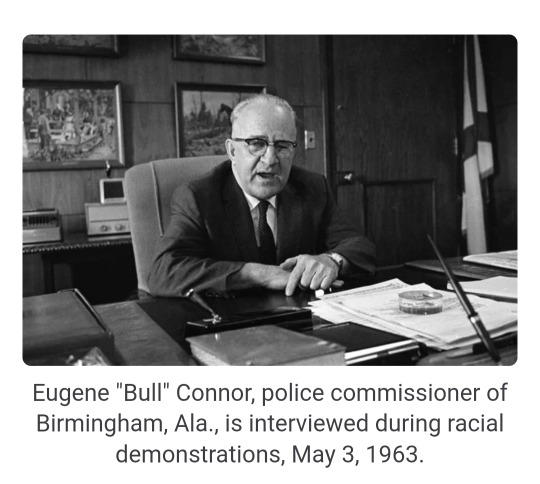
“The FBI was passively complicit,” said Diane McWhorter, author of “Carry Me Home: Birmingham, Alabama, The Climactic Battle of the Civil Rights Revolution.”
The attack occurred with the blessing of Alabama public safety commissioner Eugene “Bull” Connor, who told Klan leaders that police would wait 15 minutes before stepping in.
Paul Butler, a law professor at Georgetown University in Washington, D.C., said he sees the links between the police violence of Birmingham and “Bloody Sunday” and the tanks, tear gas and rubber bullets employed at today’s Black Lives Matter demonstrations.
“We have John Lewis and others marching on that bridge protesting police brutality, and they get attacked and beat up by police,” said Butler, author of the book “Chokehold; Policing Black Men.” “And last summer, throughout the country there were marches on police brutality – and at these marches, police attacked the people protesting police brutality. The parallels are clear.”
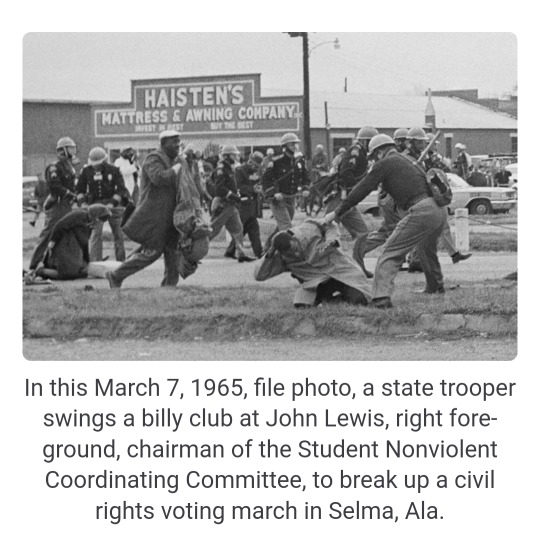
People of color continue to be disproportionately affected by fatal police shootings, with significantly higher death rates than whites over the previous five years, researchers at Yale University in Connecticut and the University of Pennsylvania reported last year. “So it’s unclear whether change is actually occurring,” Butler said.
Critics note the police presence and brutality faced by Black Lives Matter protesters during the unrest following Floyd’s murder – the open-source database Bellingcat found more than 1,000 incidents of police violence – in contrast with the relatively unprepared force that was unable to stop hordes of mostly white Donald Trump supporters from breaching perimeter fencing and entering the U.S. Capitol during the Jan. 6 insurrection.
“There has never been a time when policing of public speech hasn’t been racially biased,” said Justin Hansford, executive director of Howard University’s Thurgood Marshall Civil Rights Center in Washington, D.C. “With the civil rights-era protests, most people understood that they were standing up for core American principles as opposed to Jan. 6, where they were trying to stop people’s votes from being counted.”
A USA TODAY analysis of arrests linked to the insurrection found that 43 of 324 people arrested were either first responders or military veterans; at least four current and three former police officers now face federal charges.
Education leaders have maneuvered to keep segregation, hide racist history
Education leaders have also at times sought to stall progress.
Two years after the Supreme Court’s landmark 1954 decision ruling segregated schools unconstitutional, Virginia Rep. Howard Smith took the floor to address his colleagues.
There, he introduced a document signed by 82 representatives and 19 senators, all from former Confederate states. The so-called Southern Manifesto called for resisting desegregation and blasted the Brown decision as an abuse of judicial power violating states’ rights.
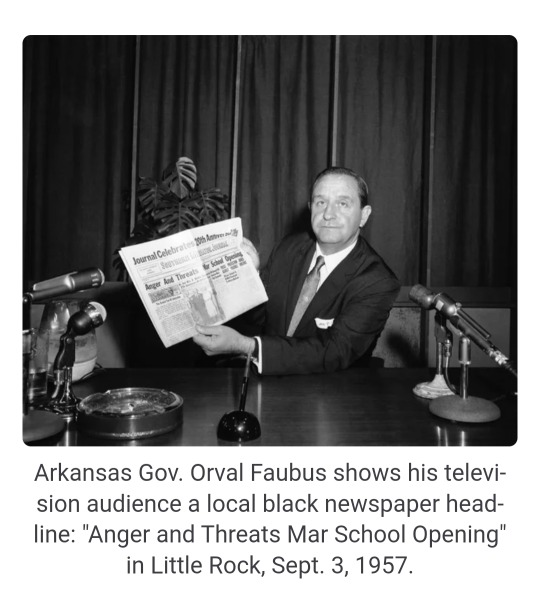
The gesture demonstrated how deep resistance to desegregation ran in the South. The next year, Arkansas Gov. Orval Faubus summoned the National Guard to prevent nine Black students from entering Little Rock’s Central High, in defiance of a federal order.
“After the ruling comes down, you have massive resistance in the South,” said Sonya Ramsey, an associate history professor at the University of North Carolina at Charlotte. “You have school boards saying they’re not going to do it. You have government officials saying they’re not going to do it. That’s a system.”
Resistance came in many forms, she said, from committees formed to study the matter in perpetuity to policies that allowed whites, but not Blacks, to transfer schools.
Some institutional leaders did make positive strides, Ramsey noted, even if for economic reasons. While many Southern cities resisted desegregation efforts, officials in Charlotte, North Carolina, eager to promote the area as a progressive business climate, constructed a districtwide busing plan designed to have schools reflect the community with the help of Black and white families and local leaders.

But institutional ills continue, Ramsey and others say – in charter schools now struggling with diversity, in faulty school funding formulas and in ongoing debates about what students should be taught about slavery and racism. Bills limiting how educators can teach about racism have been introduced this year in at least 28 states.
A 2018 Southern Poverty Law Center study of educational standards in 15 states found none addressed slavery’s justification in white-supremacist ideology nor its integral part in the economy; furthermore, the report noted, a separate survey found just 8% of high school seniors identified slavery as the Civil War’s cause.
“It’s fear of the unknown and of disruption,” said Donnor, of William & Mary. “And seeing that the status quo is no longer acceptable. One of the major parallels is in the hostility of the pushback. If you peel back the layers, you can see the similarities.”
News media shapes how Americans view race
The news media has throughout the nation’s history helped Americans understand racial issues – for better or worse.
In 1962, after James Meredith tested federal law to become the first Black student admitted to the formerly all-white University of Mississippi, the station manager of Jackson’s WLBT decried the decision on-air, saying states should make their own admission decisions.
Station officials strongly supported segregation, rebuffing calls for opposing views, avoiding civil rights coverage and notoriously blaming technical problems for interruption of a 1955 “Today Show” interview of attorney Thurgood Marshall. Ultimately, after repeated complaints to the Federal Communications Commission and a crucial federal court decision affirming public input in FCC hearings, the station lost its license.
“These are the stories we weren’t taught in journalism school,” said Joseph Torres, co-author of “News For All the People: The Epic Story of Race and the American Media.” “They (civil rights groups) were saying, it’s a public airwave, and it’s not being fair to the Black community.”
Black media stepped up to offer different perspectives of mainstream narratives or provide coverage that wasn’t otherwise there. When 14-year-old Emmett Till was lynched in 1955 by two men who would ultimately be acquitted by an all-white jury, Jet magazine published a photo of Till’s mutilated body that helped kickstart the civil rights movement.
While some white-owned media such as Mississippi’s Delta Democrat Times and Lexington Advertiser condemned segregation and violence, others such as Jackson’s Clarion-Ledger held to the status quo. Gannett, the parent company of USA TODAY, purchased the newspaper in 1982.
“Had the Clarion-Ledger taken a leadership position denouncing atrocities going on in front of their faces, the state would be farther along in terms of getting past some of the pain,” said Mississippi Public Broadcasting executive editor Ronnie Agnew, who served as the newspaper’s executive editor until 2011.

In 1968, the landmark Kerner Commission, appointed to investigate the unrest that had exploded in national riots, faulted the media in addition to longstanding racism and economic inequalities. “The press has too long basked in a white world looking out of it, if at all, with white men's eyes and white perspective," the commission’s final report read.
“They made it absolutely clear that the white press had done a terrible job of covering civil rights,” said Craig Flournoy, a journalism professor at the University of Minnesota who has critiqued the Los Angeles Times’ “incendiary” coverage of the 1965 Watts riots, for which the newspaper won a Pulitzer.
Flournoy said the Times relied heavily on white police and white elected officials for material. In one particularly egregious example, he said the newspaper, having no Black reporters on staff, sent a young Black advertising staffer into Watts to dictate dispatches by payphone, but his notes were repurposed into sensational stories that exaggerated the supposed Black threat.
8 notes
·
View notes
Text
As our population ages, the safety and well-being of seniors have become increasingly important concerns for families and caregivers. Supervision plays a crucial role in maintaining the health and security of elderly individuals, particularly those receiving home health care in Fayetteville, North Carolina. This level of care is not just about overseeing daily activities, but also about providing a watchful eye that ensures both physical safety and emotional comfort.
0 notes
Text
Built On A Solid Reputation For Assisted Living In North Carolina
Preserving the well-being of our residents has always been the hallmark of The Carolina Inn, Fayetteville’s premier assisted living north carolina community. It’s how we’ve upheld a legacy of unparalleled senior care for more than 20 years right here in North Carolina. Today, as seniors face health challenges as never before and the demand for memory care grows, we continue to put your loved ones’ needs—and safety—first in thoughtful and innovative ways. Beyond establishing protocols to protect the health of our assisted living residents, we create customized programs to encourage independence and help those struggling with memory loss maintain their dignity. Dedicated caregivers…available 24 hours to ensure consistent support…treat everyone like family. Give us a call at (910) 218-9801 to find out what makes The Carolina Inn so special.
1 note
·
View note
Link
How to Vaccinate Homebound Seniors? Take the Shots to Them. One vial of vaccine. Five elderly homebound patients. Six hours to get to them before the vaccine spoiled. Doctors at Northwell Health, the largest heath care provider in New York State, set out last week to solve one of the most vexing medical and logistical challenges of the campaign to get Americans vaccinated against the coronavirus: how to inoculate millions of seniors who live at home and are too frail or disabled to go to a clinic or queue up at a vaccination site. Members of the network’s house calls program had prepared for their first run. A supply of the new Johnson & Johnson coronavirus vaccine made the operation easier, because one visit would do the trick. A medical team mapped out a route that would include a cluster of homes not too far from one another, starting with older patients in underserved communities hard hit by the virus. The doctors contacted the patients well ahead of the visits, knowing they’d need plenty of time to consult with their families about whether to get vaccinated. Only a few turned them down; most were enthusiastic. Before the doctors hit the road, they screened patients on the phone to make sure they were relatively healthy. Any unexpected problems had to be avoided. The doctors were racing against the clock: Once they punctured the seal on the vial and drew the first dose, they had only six hours to use the remaining vaccine, or they would have to throw it out. “We’ll be running a tight ship, I think, but very compassionately,” said Dr. Karen Abrashkin, the program’s medical director, as a bulky, high-tech cooler — actually, a car refrigerator — was loaded onto the back seat of her car last Wednesday and plugged in to a cigarette lighter. Inside was a vial the size of a thimble, containing five doses of vaccine. “It’s a historic moment,” she said. Her first stop was a twofer, the home of a married couple in Hempstead, N.Y. Hector Hernandez, 81, a retired window cleaner who used to scrub high-rise buildings in Manhattan, and his wife, Irma, 80, a retired seamstress, had decided to get vaccinated, after sorting through a potpourri of conflicting advice from friends and family. “First I was skeptical — is it safe?” Mr. Hernandez said. Two friends had warned him to be careful because the vaccine was new. But Mrs. Hernandez’s cardiologist assured the couple it was safe, and another friend seemed confident that getting the vaccine was better than not getting it. The couple’s granddaughters, including one who was laid up with Covid-19 for two weeks, advised waiting to see if the vaccine had long-term side effects. In the end, Mr. Hernandez said, their daughter persuaded them to get vaccinated. “She called and said, ‘You have to get it done, because if you ever get Covid, it can be really bad — you can’t breathe,’” Mr. Hernandez said. As Dr. Abrashkin punctured the vial’s seal with a syringe, Lorraine Richardson, a social worker accompanying her, jotted down the time: 10:11 a.m. The two would monitor the Hernandezes for side effects for 15 minutes, and then hit the road. They had until 4:11 p.m. to reach three more patients. At least two million Americans like the Hernandezes are homebound, a population all but invisible. Most suffer from multiple chronic conditions, but cannot get primary care services in their home. They frequently wind up in hospitals, and their ailments leave them vulnerable to the coronavirus. Updated March 22, 2021, 1:21 p.m. ET When public health officials drew up plans for distributing vaccines, priority was given to the roughly five million residents and employees of congregate settings like nursing homes, where the coronavirus spread like wildfire during the early days of the pandemic. The virus killed at least 172,0000 residents and employees, accounting for about one-third of all Covid-19 deaths in the United States. A vast majority of Americans over 65, however, do not live in nursing homes or assisted living facilities, but in the community, where it’s more challenging to reach them. There is no central registry of the homebound elderly. Geographically dispersed and isolated, they are often difficult to find. “This could be the next big hurdle for the older population,” said Tricia Neuman, a senior vice president at the Kaiser Family Foundation. “So much of the vaccination rollout has been a patchwork at the state or local level, but this presents a whole different set of challenges.” Vaccination rates among seniors have risen quickly, with at least 60 percent inoculated so far. But there is no system in place for reaching the homebound, Dr. Neuman noted: “Some people simply cannot get themselves to a vaccination site, so the challenge is getting the vaccine to them, where they live.” In the absence of a centrally coordinated campaign targeting the homebound, local initiatives have sprung up around the country. Fire Department paramedics are administering vaccines to homebound seniors in Miami Beach, Fla., and in Chicago. A visiting nurse service vaccinates older adults located through the Meals on Wheels program in East St. Louis, Ill. Several health systems, like Geisinger Health in Pennsylvania and Boston Medical Center, have identified hundreds of homebound Americans and sent vaccines to them. In Minnesota, nonprofits have started pop-up vaccination clinics at senior apartment buildings and adult day care centers. On Monday, New York City announced that it was expanding efforts to go door-to-door to vaccinate homebound seniors, with plans to reach at least 23,000 residents. The visiting doctors program at Mount Sinai in New York, which cares for 1,200 homebound residents, has vaccinated 185 patients and has been given the greenlight to vaccinate the seniors’ caregivers as well, according to Dr. Linda DeCherrie, the clinical director of the Mount Sinai at Home program. Northwell’s house calls program, which cares for patients in Queens, Manhattan and Long Island, plans to vaccinate 100 patients a week over the next 10 weeks, a timetable that could be accelerated if nurses are allowed to carry rescue medications in case patients develop adverse reactions like anaphylactic shock. While Dr. Abrashkin was administering vaccines on Long Island last week, Dr. Konstantinos Deligiannidis, a colleague, was vaccinating five elderly women in the Brentwood, N.Y., area over the course of four hours. “They were so relieved,” he said. “They had all been worried — how could they get the vaccine since they couldn’t get out of the house?” Dr. Abrashkin and Ms. Richardson visited — and vaccinated — two more elderly women on Wednesday before making their last stop at the sunny, plant-filled kitchen of Juanita Midgette, 73, a retired computer science and business teacher living with arthritis who counts Eddie Murphy among her past students. (Spoiler alert: He was a respectful student, she said, and she recommended his new movie, “Coming 2 America.”) It was 12:31 p.m. when they knocked on the door. Ms. Midgette had heard mixed reviews about the coronavirus vaccine, and had been squabbling with her sister about it. But she had been unable to travel to her native North Carolina and visit with relatives since the pandemic hit, and she was hopeful the vaccine would give her the freedom to do so. She believed in God, and in science. Ms. Midgette said her research into the vaccine led her to conclude that “the positivity greatly outweighs the negativity.” “My research tells me they are doing the best with the data they have collected so far to save lives,” Ms. Midgette said. “It reminds me of when we had the first computers, and they were so large, but we started teaching with them,” she said. “Now they fit in the palm of your hand. Had they waited until they got something smaller, the world would look different than it does today.” After getting the shot, she asked Dr. Abrashkin: “Is it all over?” “It’s hard to be isolated,” Ms. Midgette said. “I’m looking forward to being able to mingle again, in some way, somehow.” Source link Orbem News #homebound #seniors #shots #Vaccinate
1 note
·
View note
Text
June 19, 2019: Obituaries
Lovina Schrock, 91
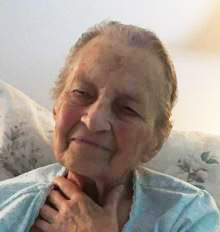
Mrs. Lovina Hostetler Schrock, 91, of Moravian Falls, passed away on Sunday, June 16, 2019 at her residence.
Lovina was born on June 11, 1928 in Stark County Ohio to Henry Hostetler and Ella Miller Hostetler.
Lovina is preceded in death by parents; husband, Mervin L. Schrock; brother, Ervin Hostetler; sister, Beulah Hochstedler and great grand daughter, Danielle Schrock.
Lovina is survived by her 5 daughters, Susan Faye Hochstetler of Canada, Joy Roselle Hileman of Ohio, Debra Kaye Yoder of Moravian Falls, Juanita Lynne Herber of Pennsylvania, Charlotte Marlene Schrock of Virginia; 5 sons, John Mark Schrock, Larry Dean Schrock, Timothy Jay Schrock, Franklin Scott Schrock all of Virginia, Frederick Allen Schrock of Moravian Falls; sisters, Mary Wittmer of Pennsylvania, Viola Mullet of Ohio; brothers, Melvin Hostetler of Ohio, Henry Hostetler of Canada; 21 grandchildren and many great grand children.
The funeral service will be held in Ohio at a later date.
Adams Funeral Home of Wilkes has the honor of serving the Schrock Family.
Nancy Winters, 5
Nancy Lee Winters, age 55, of North Wilkesboro, passed away Saturday, June 15, 2019 at Westwood Hills Nursing and Rehab Center. Nancy was born July 11, 1963 in Wilkes County to Cecil and Mandy Stanley Trivette. She loved to fish; do crafts and quilting. Ms. Winters was preceded in death by her parents; and several siblings.
Surviving are her son, Steven Winters and spouse Jessica of North Wilkesboro; daughter, Amanda Winters and spouse Zachary White of Huntington, West Virginia; a number of siblings; grandchildren, M.J. Winters and Josh Walker.
The family has requested no flowers.
Miller Funeral Service is in charge of the arrangements.
Hazel Prevette, 96
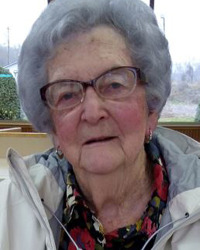
Hazel Maie Johnson Prevette, 96, of North Wilkesboro, went home to be with her Lord and Savior on Saturday, June 15, 2019 at Wilkes Senior Village.
She was born May 23, 1923 in Wilkes County, to the late William Edward Johnson and Julie Maie Combs Johnson.
Hazel was a member of Lewis Baptist Church. She loved singing and praising the Lord with her church family in the choir. She was a passionate vegetable and flower gardener.
Including her parents, she was preceded in death by: her husband, Dewey Gaither Prevette Sr.; grandchildren, Craig Williams and Pamela Taylor.
Those left to cherish and honor her memory include: daughters, Peggy Taylor (Wallace) of McGrady, Kathy Williams (Dean) of Wilkesboro; sons, D. G. Prevette, Jr. (Linda) of Wilkesboro, Kenneth Prevette (Sarah) of Lewisville; sister, Annie Lou Brown (Gene) of Millers Creek; brother, Howard Johnson of Purlear; many grandchildren, great-grandchildren, and great-great grandchildren
Funeral services wereJune 18, at Lewis Baptist Church in North Wilkesboro. Rev. Bruce Rhoades will be officiating. Burial followed in the church cemetery.
Adams Funeral Home of Wilkes and cremation services is honored to be serving the Prevette Family.
Fern Anderson, 87
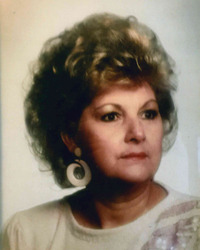
Fern Anderson, 87 Mrs. Fern Pauline Call Anderson, age 87, widow of Hobert Anderson, died on Saturday, June 15, 2019 at Villages of Wilkes.
Funeral services were June 19, at Reins-Sturdivant Chapel with Rev. Alan Bouchelle officiating. Burial was in Fishing Creek Arbor Baptist Church Cemetery.
Mrs. Anderson was born June 19, 1931 in Wilkes County to Benjamin Winfred and Carrie Elizabeth Benge Call. She was a member of Penelope Baptist Church in Hickory. Before her retirement while residing in Hickory, NC, she worked for Cline Insurance Company as a private secretary and was self-employed as a skin care specialist thru Ann Mari.
In addition to her parents she was preceded in death by her husband, Hobert Anderson; four sisters, Sylvia Call Soots, Tessie Call Foster, Florence Call Hayes Bouchelle, and Doris Call Waddell Spears; and four brothers, Julius H. Call, James P. Call, Roy "Ray" Call, and Coy "Clay" Call.
She is survived by her daughter, Linda Anderson Plemmons of North Wilkesboro; twin sons, Tracy Anderson and wife, Sandy, of Millers Creek, and Travis Van Anderson of Hickory; four grandchildren, Dana K.Anderson, Dylan L. Anderson, Doug Plemmons, and Floyd Plemmons; four great-grandchildren, Rachel C. Plemmons, Kyle P. Plemmons, Jason Sprinkle, and Elijah Foster; one great-great-grandchild, Chaselyn Kate Plemmons; one sister, Lois Call Foster of Traphill; and one brother, Thomas Jerry Call of Wilkesboro.
The latter part of her life, Mrs. Anderson spent ten years at Catawba Valley Assisted Living and three years at Wilkes Senior Villages. The family sincerely thanks the staff of both facilities for their wonderful care of their loved one.
A special thank you from the family to Shirley Bowlin for her exceptional care of our Mother.
Kenith Jones, Sr., 83
Mr. Kenith Smythe Jones, Sr., 83, of Taylorsville, passed away Thursday, June 13, 2019 at Valley Nursing Center.
Kenith was born December 18, 1935 in Fayette County, WV, the son of the late George Thomas Jones, Sr. and Inez Blanch Duncan Jones.
He was a US Army veteran, who served in Germany as a combat engineer. He had worked as a supervisor for Southern Devices before retiring and was a member of Bethel Baptist Church. He enjoyed reading Westerns, was a avid Redskin fan, and enjoyed playing golf when he was able and also enjoyed watching NASCAR.
Including his parents, he was preceded in death by: his wife, Peggy Joyce Payne Jones; four sisters, Beulah Pemberton, Doris Criss, Natella Blackwell and infant sister, Carolyn Jones; a brother, George Jones.
Those left to cherish and honor his memory include: a daughter, Patricia Jones Carter and husband, Larry, of Statesville; four sons, Kenny Jones and wife, Joan, of Taylorsville, Barry Jones and wife, Janna, of Newton, Timothy Jones and wife, Lisa, of Taylorsville, Ricky Jones of Asheville; five grandchildren, Joshua Moore, Caitlin Jones Parkhurst and husband, Matt, Ashley Jones, Tyler Jones and wife, Tiffany, Andrew Jones and fiance, Lacey Bruno; four great-grandchildren, RJ, Gracelynn, Jacob and Ezra; two sisters, Janet Payne and husband, Charles, of WV, Drema Gail Gales of VA; a brother, William Jones and wife, Carol, of WV; a sister-in-law, Christine Jones of WV; and a number of nieces and nephews.
A service was held June 17, at Bethel Baptist Church with Revs. Bill Smith and Ervel Jones officiating. Burial followed in the church cemetery with flag folding ceremony.
Pallbearers were Ken's sons and grandsons.
The family would like to express a sincere thank you for every act of kindness or visit to our loved one and also to the staff, nurses and caregivers at Valley Nursing Center.
Memorials may be made to: Alexander County Hospice, 50 Lucy Echerd Lane, Taylorsville, NC 28681.
Adams Funeral Home and cremation services is honored to be serving the Jones Family.
Terri Sigmon, 64
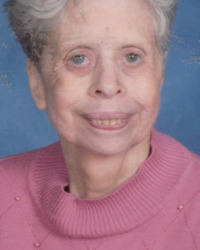
Terri Lynn Sigmon, age 64, passed away peacefully on June 11, 2019 at Valley Nursing and Rehabilitation in Taylorville and is now resting in the care of our Lord.
She was born in Hickory, NC on February 28, 1955. Prior to moving there she lived at Parklane Group home in Newton.
She was preceded in death by her parents Charles and Jane Sigmon of Hickory.
She is survived by her sister, Sandie Cline (Jimmie) of Wilkesboro, and her brothers, Robert Sigmon (Virginia) of Statesville, and Bruce Sigmon of Hickory.
Terri was a long- time member of Christ Lutheran Church in Hickory where she is best remembered for her deep faith and leading the congregation in happy birthday songs. She especially loved family gatherings during the holidays. She had a special relationship with her nephews Christopher (Tanya) of Wilkesboro, Jonathan (Ellen) and Matthew (Jessica) of Mooresville and great nephews and nieces, Ayden, Charlie, Cameron, Macie, Oren, Eli, Finley and Luke. They will cherish the memories of her.
The funeral service will be held on Thursday, June 20, at 3:00 p.m. at Christ Lutheran Church in Hickory.
The family will receive friends prior to the service from 2: 00 until 3:00 p.m. at the church. Rev. Richard Schwandt will be officiating the service. Burial will follow at Oakwood Cemetery.
In lieu of flowers memorials can be made to the memorial fund at Christ Lutheran Church, 324 2nd Ave. SE, Hickory, NC 28602.
Pallbearers for the service will be Christopher Cline, Jonathan Cline, Matthew Cline, Van Smith, Scott Wimmer, and Billy Pernell.
Vickie Cothren, 52
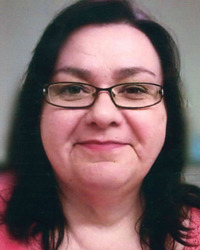
Vickie Cothren, 52 Miss Vickie Lee Cothren, age 52 of Roaring River, passed away Wednesday, June 12, 2019 at Woltz Hospice Home in Dobson.
Funeral services were June 15, at White Plains Baptist Church with Pastor William Souther and Bishop Peggy Horton officiating. Burial was in the church cemetery. Vickie was born October 24, 1966 in Wilkes County to James "Jim" Ervin Cothren and Georgie Lee Swaim Cothren. She was employed for 30 years with Wilkes Community College as a Library Assistant. Vickie enjoyed spending time with her great nieces and nephews who called her "Bibby" and liked sports from WFU, Chicago Bulls and Carolina Panthers. She also enjoyed cooking and most enjoyed sharing her testimony with her relationship with God.
She was preceded in death by her mother; Georgie Lee Cothren.
In addition to her father; Jim Cothren, she is survived by three sisters; Anna Church of Millers Creek, Teresa Absher of Roaring River and Jane Whitley of Hays, nieces and nephews; Amanda Miller (William), Sonya Evans (Allen), Michael Church, Ashley Mabe (Jason), Lindsay Jester (Justin) and Colby Whitley, great nieces and nephews; Elijah Miller, Asher Miller, Brenan, Nevan and Rowyn Mabe and Elizabeth Jester, Aunt Joy Swaim, Cousins; Calvin Swaim, Charlene Dancy and family, special friends and co-workers; Rebecca Kruger, Christy Earp, Misty Bass, Janet Atwood, Audrey Chapel and Donna Church and Fur Babies; Jett, Sanford, Melinda and Miss Sunshine.
Flowers will be accepted or memorials may be made to the Donor's Choice, Wilkes Community Partnership for Children PO Box 788 North Wilkesboro, NC 28659, Wilkes Community College Endowment Corporation PO Box 120 Wilkesboro, NC 28697 or Mtn. Valley Hospice 401 Technology Lane Suite 200 Mt. Airy, NC 27030.
James Ashley, Jr. 77
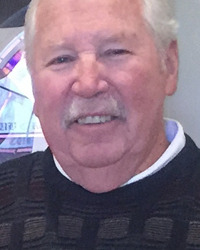
Mr. James Martin Ashley, Jr. age 77 of Wilkesboro, passed away Tuesday, June 11, 2019 at his home.
Funeral services were June 18, at Cub Creek Baptist Church with Pastor John Lewis and Mr. Frank Denny officiating. Burial was in Cub Creek Baptist Church Cemetery.
Mr. Ashley was born November 27, 1941 in Wilkes County to James Martin Ashley, Sr. and Geneva Sink Ashley. He was retired after 35 dedicated years at Lowe's Companies. During his employment he worked as a Store Manager and a Regional Manager. James was a loving and devoted husband, father, grandfather and friend. He was a member of Cub Creek Baptist Church where he was a Faithful Deacon, Loved and Respected Sunday School Teacher, member of the Adult Choir and Hand Bell Choirs, Good News Club Teacher, served on the Building Committee, Maintenance Committee and the Expansion Committee. James was an avid Golfer. After retirement, he enjoyed spending his time working on his cattle farm and enjoying the beautiful mountain views. He was always helping or attending the many activities with his grandchildren. James was well known for his love of his family, his church and his tremendous work ethic. His best Friend, Bear, Black-Lab mix was always at his side, waiting for the last bite of anything that James ate.
In addition to his parents, he was preceded in death by a brother; Bill Ashley.
James is survived by his wife; Judy Ann Wayne Ashley of the home, two daughters; Jamie Ashley Beamon and Lorie Ashley Kerhoulas both of Wilkesboro, a son; James Martin Ashley, III "Jimmy" of Wilkesboro, five grandchildren; Anna Kerhoulas LaFave and husband Ethan, Stephen Kerhoulas and fiancé Clair Colburn, Martin Beamon, Jacob Beamon and Nicholas Ashley, a great grandchild; Addy Billings and two sisters; Ann Ashley and Jane Ashley both of Wilkesboro.
Flowers will be accepted or memorials may be made in honor of grandchildren Anna and Jacob to the Juvenile Diabetes Research Foundation Piedmont Triad Chapter 216 W. Market Street Suite B, Greensboro, NC 27401.
Ann Whitworth, 83
Ann Hill Whitworth, age 83, passed away on Tuesday, June 4, 2019 at her home in Purlear, NC. She was born in Erwin, NC on November 12, 1935 to Frank Weaver, Sr. and Elsie Horrell Weaver.
Mrs. Whitworth was formerly employed at Liggett & Myers Tobacco Company and was retired from Duke Medical Center. She was a member of Greystone Baptist Church until her move to Purlear, NC in 2007. She was a member of New Hope Baptist Church, Purlear, NC until her passing.
She was preceded in death by her husband, Fred Roy Hill and her husband, Donald Whitworth.
She is survived by her daughter, Deborah Hill Yates of Purlear, NC; her son, Frederick A. Hill of Durham, NC; three grandsons, Ross B. Yates, and wife, Andrea of Mt. Pleasant, SC, Brett J. Yates of Millers Creek, NC, and Mark C. Yates of Purlear, NC and three great grandchildren, Finley Madison Yates, Bennett Reid Yates, and Cooper Hill Yates.
A memorial service will be held on June 29, 2019 at 2:00 PM at Greystone Baptist Church, Hillsborough Road, Durham, NC. A private burial at Maplewood Cemetery, Durham, NC will follow the memorial service. In lieu of flowers, the family requests that memorials be made to Wake Forest Care at Home Hospice, 126 Executive Drive, Suite 110, Wilkesboro, NC 28697.
Miller Funeral Service is in charge of the arrangements.
3 notes
·
View notes
Text
Why Doesn’t Medicare Cover Services So Many Seniors Need?
Sorry, Joe Namath. Despite what you keep saying in those TV ads, under Medicare, seniors are not “entitled to eliminate copays and get dental care, dentures, eyeglasses, prescription drug coverage, in-home aides, unlimited transportation and home-delivered meals, all at no additional cost.” But if Democratic lawmakers in Congress have their say, seniors could soon be entitled to some of those services.
Namath’s commercial is hawking private Medicare Advantage plans, which frequently do offer benefits traditional Medicare does not — in exchange for being limited to certain doctors and hospitals. “Traditional” Medicare does not cover many benefits used overwhelmingly by its beneficiaries, including most vision, dental and hearing care, and drug coverage is available only by purchasing a separate insurance plan — Medicare Part D.
But Democrats in the House and Senate plan to try to change that as soon as this fall. On Monday, Senate Majority Leader Chuck Schumer released an outline of a coming budget bill that includes a directive to the Senate Finance Committee to expand Medicare “to include dental, vision, hearing benefits.” The catch — all the Democrats in the Senate and almost all in the House will have to agree on the entire budget bill for it to become law.
Still, that raises a question about Medicare: Why has it taken so long to add such obviously needed benefits?
As with almost everything to do with the U.S. health system, the answer is complicated, and a combination of policy and politics.
“Medicare is the kind of program where you’d expect the benefits would be expanded over and over again. It’s popular, and benefits expansions poll well,” said Jonathan Oberlander, a professor of health policy at the University of North Carolina-Chapel Hill and author of the book “The Political Life of Medicare.” “It’s one of the great puzzles of Medicare politics: why benefit expansions have been so rare.”
In fact, in the 56 years since Medicare became law, only a few benefits have been added to the package, which was created to emulate a 1965 Blue Cross/Blue Shield plan. During the 1980s and ’90s some preventive care was added, like pneumonia vaccines and mammograms. Republicans spearheaded the addition of prescription drug coverage in 2003, when they controlled both Congress and the White House. But they decided to make that coverage separate from the program’s traditional benefit package.
Other efforts to expand benefits have not gone so well. In 1988, a bipartisan effort in Congress produced the Medicare Catastrophic Coverage Act, which would have added drug coverage to traditional Medicare and also would have plugged a hole: the fact that there is no limit on the amount patients can be charged for their share of covered services. That law, however, was repealed just a year later after seniors rebelled against being asked to foot most of the bill for the new benefits via a new income “surtax.” Today, Medicare beneficiaries still face the risk of unlimited expenses.
Medicare is funded by a combination of money paid directly to the government from paychecks and taxes paid by working Americans and their employers. That brings us to another big reason Medicare’s benefit package hasn’t been beefed up more — the cost of the current program.
“When Medicare was created, its architects assumed expansion, both in terms of population and in terms of benefits later,” said Oberlander. “They didn’t anticipate the shift in American politics to the right, and they didn’t anticipate that Medicare would be labeled a fiscal problem and that policymakers would be more concerned with avoiding the next trust fund shortfall than expanding benefits.”
Indeed, in the ’80s and ’90s, Medicare spending was more often restrained than expanded. A series of budget reconciliation bills trimmed millions of dollars out of Medicare — usually at the expense of payment to doctors, hospitals and other health providers.
As the years wore on, Medicare has remained popular, but it has grown less generous than most private insurance policies. Many Medicare patients, however, have been able to find supplemental coverage to fill in what Medicare does not cover, through private “Medigap” policies, employer-provided retiree plans or Medicaid for those with low incomes. Increasingly popular in recent years have been those Medicare managed-care plans, now known as Medicare Advantage, that were first authorized in 1982 and often provide extra benefits for members.
All of that “has taken some of the pressure off” lawmakers to expand the program, Oberlander said. And a final reason that vision, hearing and dental care have not been added to standard Medicare is that they are far from the most critical gaps in Medicare’s benefit package.
For example, Medicare does not cover long-term custodial care — the sort of non-nursing, personal care that provides assistance in activities of daily living such as bathing, dressing, eating, getting in or out of a bed or chair, using the bathroom or preparing food. Custodial care tends to be both very expensive ($50,000 to $100,000 a year or more) and needed by a large number of beneficiaries, particularly after age 80. Efforts over the years to create a government long-term care benefit have been largely unsuccessful. A very limited program, the CLASS Act, was part of the Affordable Care Act in 2010 but was repealed before it could take effect because its financing was deemed insufficient. President Joe Biden has called for Congress to include billions of dollars for caregiving in the infrastructure package Democrats will work on this fall.
Also, as previously mentioned, traditional Medicare includes no limits on patient cost sharing — the percentage or amount of a medical bill that a beneficiary must pay. Its basic hospital benefit runs out after 90 days, and the 20% coinsurance (the percentage patients are responsible for) on outpatient care runs indefinitely.
So why are dental, vision and hearing coverage on the front burner now as lawmakers consider beefing up the program? Part may be self-serving for lawmakers tasked with appropriating funds. All three benefits “are less expensive than [adding] nursing home” coverage, said Oberlander.
But a big part is politics. On the campaign trail, Biden promised to lower Medicare’s eligibility age from 65 to 60. “Medicare for All” advocates like Senate Budget Committee Chair Bernie Sanders (I-Vt.) pledged to try to do the same, and lowering the eligibility age is included in the outline Schumer shared with Senate Democrats as an option.
But lowering the eligibility age is vehemently opposed by hospitals and other health providers, who fear they will lose money if people currently covered by higher-paying private insurance are covered by Medicare instead. That makes benefits expansion the much easier choice for Congress.
That is not saying it will happen. The Congressional Budget Office said the vision, hearing and dental benefits included in a bill passed by the House in 2019 would have cost an estimated $358 billion over 10 years. But this is the closest the benefits have gotten to enactment since Medicare’s inception.
HealthBent, a regular feature of Kaiser Health News, offers insight and analysis of policies and politics from KHN’s chief Washington correspondent, Julie Rovner, who has covered health care for more than 30 years.
KHN (Kaiser Health News) is a national newsroom that produces in-depth journalism about health issues. Together with Policy Analysis and Polling, KHN is one of the three major operating programs at KFF (Kaiser Family Foundation). KFF is an endowed nonprofit organization providing information on health issues to the nation.
USE OUR CONTENT
This story can be republished for free (details).
Why Doesn’t Medicare Cover Services So Many Seniors Need? published first on https://smartdrinkingweb.weebly.com/
0 notes